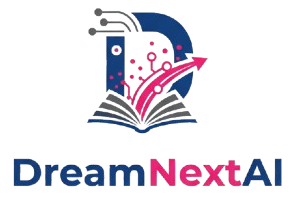In the rapidly evolving landscape of productivity software, Notion has emerged as a versatile and powerful tool for individuals and teams alike. Combining elements of note-taking, project management, and collaboration, Notion is reshaping the way we approach organization and workflows in both personal and professional settings. In this blog post, we’ll delve into Notion’s key features, its benefits for users, and how it stands out in the crowded market of AI tools and productivity software.
Key Features of Notion
Notion’s appeal lies in its extensive range of features that cater to various productivity needs. Here are some of the standout functions:
- Customizable Workspaces: Users can create personalized workspaces tailored to their specific needs, whether it’s for project management, personal tracking, or collaborative tasks.
- Note-Taking and Documentation: Notion provides rich text editing tools, enabling users to take detailed notes and create documentation seamlessly.
- Database Functionality: Users can create databases to store and manage information efficiently, using tables, kanban boards, calendars, and lists.
- Collaboration Tools: Notion allows real-time collaboration, where multiple users can work on the same document or project simultaneously.
- Integration Capacity: It supports integration with various apps (like Google Drive and Trello), enhancing its functionality and simplifying workflows.
- Templates: Notion offers a variety of pre-made templates to help kickstart projects, covering everything from meeting notes to project plans.
Benefits for Users
Notion is not just a collection of features; it offers numerous benefits that enhance user productivity and streamline organization. Here’s how:
- Enhanced Productivity: By consolidating multiple tools into one platform, Notion reduces the need for switching between applications, thus saving time and increasing focus.
- Flexibility: The software is adaptable to different methodologies, whether you prefer Agile sprints or traditional project management, allowing teams to tailor their workflows.
- Centralized Information: Notion serves as a one-stop-shop for all your documents, notes, and databases, which facilitates easy access and knowledge sharing among team members.
- Improved Collaboration: The real-time editing features foster better communication and teamwork, helping to keep everyone aligned and informed.
- Cost-Effective: With a free tier available, Notion is accessible for individuals and small teams, making it an excellent option for startups and freelancers.
How Notion Compares to Other Productivity Tools
While many productivity tools exist, Notion distinguishes itself through its unique approach and elegant design. Here’s how it compares to traditional tools like Microsoft OneNote and Trello:
- Versatility: Unlike OneNote, which primarily focuses on note-taking, Notion combines note-taking with project management and collaboration, offering a more comprehensive solution.
- User Interface: Notion’s clean and customizable interface allows for a more visually appealing user experience compared to the more rigid layouts of other tools.
- Database Features: Trello’s card-based management doesn’t offer the depth of database functionality that Notion provides, which is crucial for users needing complex data organization.
- Integration Capabilities: While many tools have some integration options, Notion’s extensive capabilities ensure it fits into your existing tech stack with ease.
- Learning Curve: Notion may initially be complex for new users due to its extensive features, but once mastered, it provides unparalleled flexibility compared to simpler tools.
Case Studies: How Teams Use Notion Effectively
Real-world applications of Notion highlight its capabilities and suitability for various contexts:
- Startups: Many startups utilize Notion to initiate project management, keep track of OKRs (Objectives and Key Results), and manage shared knowledge bases all in one platform.
- Creative Teams: Designers and content creators leverage Notion for brainstorming, maintaining editorial calendars, and conducting creative reviews, ensuring everyone is on the same page.
- Remote Workforces: Remote teams benefit from Notion’s collaborative features, using it for virtual meetings, documentation, and project tracking, minimizing the chaos of disorganized communication.
Getting Started with Notion
If you’re ready to explore what Notion has to offer, here’s a quick guide to getting started:
- Create an Account: Sign up for a free account on Notion’s website.
- Explore Templates: Browse the template gallery to find a starting point that fits your needs.
- Build Your Workspace: Customize your workspace by adding pages and databases as required.
- Invite Team Members: For collaboration, invite your team members to join your workspace.
- Utilize the Community: Engage with Notion’s community for tips, tricks, and inspiration on how to leverage the tool effectively.
Conclusion
Notion is more than just another productivity tool; it’s a transformative platform that embraces the principles of automation and efficiency. By consolidating various functions into one cohesive environment, Notion empowers users to take control of their productivity like never before. Whether you’re an individual creator or part of a larger organization, Notion’s adaptable nature can enhance your workflows and foster a culture of collaboration.
Ready to revolutionize your productivity? Give Notion a try and experience the difference it can make in how you manage projects and ideas. Join the growing community of users who have discovered the power of this exceptional tool!

